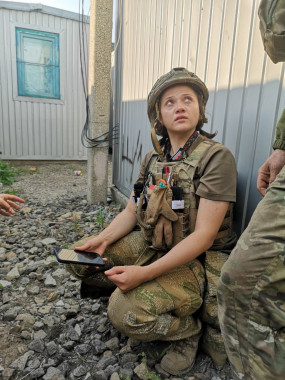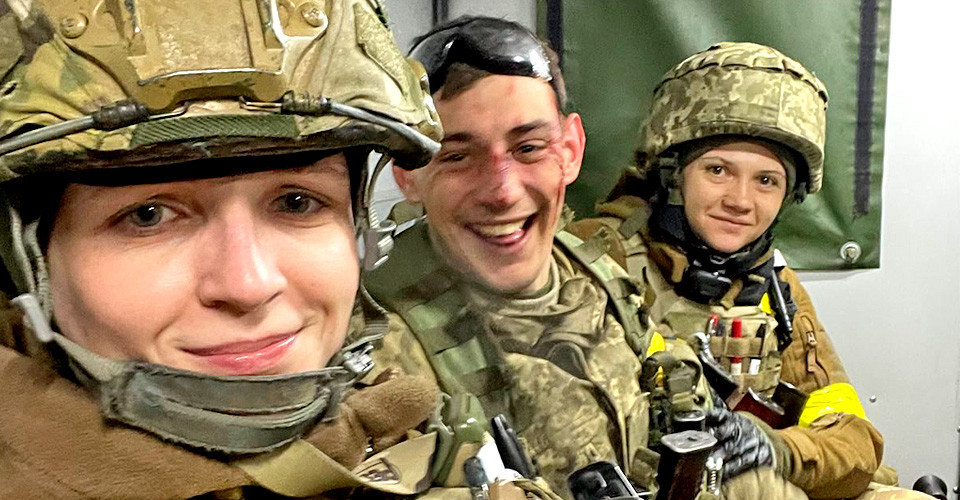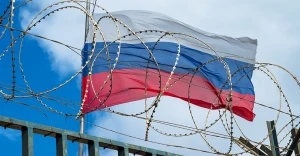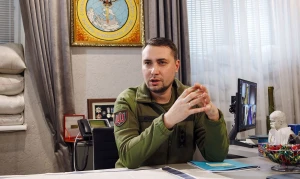
Ukrainian defender with a call sign Witch have saved ten wounded people at the same time
Military medic with a call sign Witch has been helping our defenders on the front lines since the age of nineteen. During her nine years of service, she saved dozens of soldiers and impressed them with her beautiful Ukrainian language
Espreso.West tells the story of the military.
Military medic with the call sign Witch is a paramedic of the medical company of the 80th Air Assault Brigade of the Armed Forces of Ukraine. In 2015, she voluntarily joined the army and became a combat medic. During nine years of service, she saved dozens of soldiers.
"If you have chosen the profession of a doctor, you must be prepared for everything," the Witch emphasizes. You have to save your friends, especially if it's a small unit. You have to have stamina and it's very difficult. First of all, a medic has to be cool-headed."

The girl has a medic education, but she has never worked in a civilian hospital. When the war started in 2014, Witch lost two friends at the front. They still cannot be identified. This prompted her to go to war. Therefore, after graduating from college, she went to the Military Commissariat to sign a contract. There were no questions about who I would be in the army. I wanted to be a medic.
"I was expelled from there because I was 18 years old," she laughs. "They told me to think, talk to my parents and come when I turn 19. I came the second day after I turned 19. They tried to expel me again. But then I didn't go. I applied to the Lviv hospital, I wanted to go there to work, but there were only vacancies in the 66th mobile hospital. That's how I got there."
In order to save the wounded, the girl did not need knowledge of civilian medicine at all. She specifically took courses to become a combat medic. Admittedly, sometimes professional knowledge gets in the way on the battlefield.

"When you are a medic by education, you start to argue with the instructors, you don't agree with a lot of things, because in colleges and universities they teach you to work in a hospital," the military woman notes. "But here you work on the battlefield, there are completely different conditions for providing assistance. You don't need a medical degree to be a combat medic. A person who wants to become a combat medic can take a course and that's enough."
Witch rescued the first wounded in Pokrovs’k in the Donetsk region. Although the city was a gray area then, there were enough injuries. However, the girl quickly got used to the situation at the front and joined the military team.
"What surprised me the most was how the boys - military servicemen reacted to the Ukrainian language," the girl laughs. I said something, and I see - the boys are laughing. I'm thinking, what did I say. And they - we haven't heard Ukrainian language for so long, and you communicate like this. They say that they didn't understand anything from what I said, but said I speak Ukrainian so well. And asked me to say something else."
The hardest part is saving friends
During the eight years of the Russian-Ukrainian war, the girl saved soldiers in hospitals and directly on the battlefield. And with the beginning of the full-scale invasion of Russia into Ukraine, there was even more work. Due to the constant work of artillery, missiles, aviation, injuries were much more severe. In two days of Russian "special operation", more than one and a half hundred wounded people had to be evacuated.
"During the full-scale war, I lost a lot of close friends. That's why it's probably the most difficult to work with friends," Witch admits. And, if we consider the nature of the injuries, then the worst injuries are after tank shelling. Because they bring people with mangled bodies and amputated limbs."
The work of doctors on the front line is difficult and requires a lot of effort. You have to work in an evacuation vehicle, in motion on country roads. Up to ten soldiers had to be taken out at the same time.
"The number of wounded depends on the type of shelling. It used to be that people with contusions were taken out. If they were lying down, three hundred sat on the ground. And the medics had a space 30 cm by 30 cm, such a square, in order to work with the lying ones and try to do as much as possible."
Witch admits that even this is not the most difficult part of the work of a medic on the front line.
"When a person dies on the road, it's the most difficult," Witch says. "Because, first of all, in the medic's head is the thought that you didn't complete something, even though you did everything possible. But you start scrolling through the situation and think, what else could you do. I can't get used to seeing seriously injured people die in a car. That's the only thing I can't get used to."
Despite this, the girl is not going to leave the army until our victory. And then plans to return to peaceful life and become a psychologist. She dreams of working with children. So now she remains at the front to defeat Russians as soon as possible and make her wish come true.
- News











































